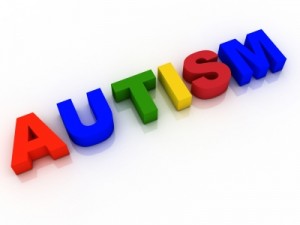
In the United States today, depression is considered a common mental health issue affecting more than 15 million people. Although a person might think depression is easy to spot with obvious symptoms, identifying the signs as they are presented can be difficult considering how subtle the nature of depression symptoms can be. This is especially true when it comes to identifying symptoms of a life partner. Do any of the below symptoms of depression sound familiar regarding your life partner?
1. Changes in physical care – Have you been noticing that your partner has not been showering as frequently as they have in the past? Has your partner either gained or lost weight without intentionally trying? Symptoms can also be different depending on gender. For example, men have a tendency to start shaving less frequently and women have a tendency to wear less make up than usual. People struggling with depression will often put less effort into their daily getting ready routine.
2. Lack of motivation – In addition to your partner putting less effort into getting up and dressed, has it become difficult to get your partner out of the house, even if doing activities that they used to enjoy? Has your partner suddenly begun a pattern of lateness? Would your partner rather hang around the house all day? People suffering from depression lose normal motivation, do not see value in doing things they once loved, and would prefer to be within the comfort of their own home, leading us to the next few points.

3. Fatigue – Your partner does not seem to have the same zest for life as shown by the lack of motivation. Does your partner seem more tired all the time? Have you noticed changes in their sleeping patterns, whether it be sleeping much more than usual or much less? If a person is struggling with depression, exhaustion can be expected because being depressed utilizes much more energy than people realize on a day to day basis. If a person is depressed, doing normal, every day activities takes much more effort. The person needs to fight through fatigue and lack of motivation to even perform the simplest tasks.
4. Isolation – Has your partner stopped spending time with their friends or family? Does your partner flake when it comes to social engagements? People struggling with depression often find socializing to be extremely draining because of the fatigue an lack of motivation. Instead, those who are depressed are known to retreat to a place of solitude and isolation to avoid these situations that they once enjoyed.
5. Escapist behavior – Has your partner started exhibiting escapist behavior? This can be observed in many different ways. Has your partner started drinking more than they had in the past? Does your partner sit for hours in front of the tv or seem completely consumed by video games? This is considered escapist behavior because a person can use these behaviors to avoid facing their problems.

6. Emotional reaction changes – Have you noticed changes in your partner’s patience? Is it difficult to speak to them because you are afraid of their overreaction? On the other hand, does your partner’s reactions seem emotionally devoid? Does your partner not seem to react with any emotionality to any of the things you say to them? Changes in emotional reactivity indicate depression as a distinct possibility.
7. Changes in intimacy – Have the levels of intimacy changed in your relationship? Does your partner seem disinterested in sex or are they physically incapable of having sex presently? Depression initiates in the brain, which is where sexual stimulation initiates. If the brain is not functioning properly, a person may feel physically and emotionally disconnected, making intimacy challenging for both partners.
If your partner has been exhibiting signs of depression, speak with them in an understanding, compassionate way. Many sufferers might feel shame that they are experiencing depression, so remind them there is no shame in needing help dealing with depression.
To develop a wellness plan specific to the needs of your partner, our director Dr. Jolene Ross offers free consultations.
Click here to read “10 Types of Depression”
Click here to read “8 Natural Solutions for Depression”
First image courtesy of David Castillo Dominici at FreeDigitalPhotos.net
Second image courtesy of imagerymajestic at FreeDigitalPhotos.net
Third image courtesy of nuttakit at FreeDigitalPhotos.net








